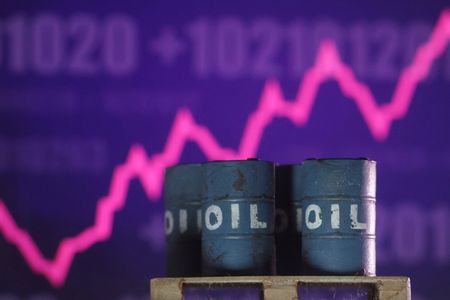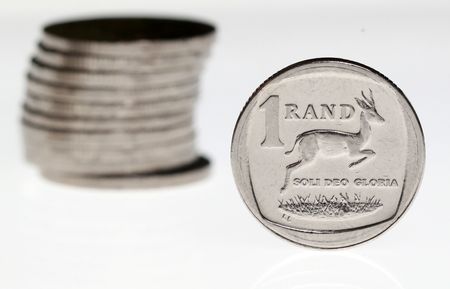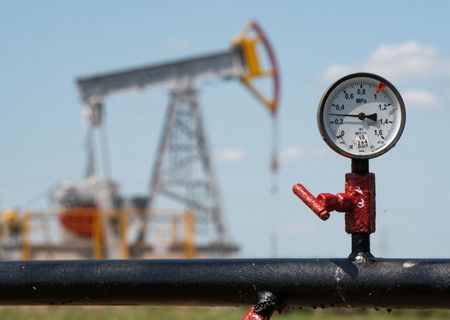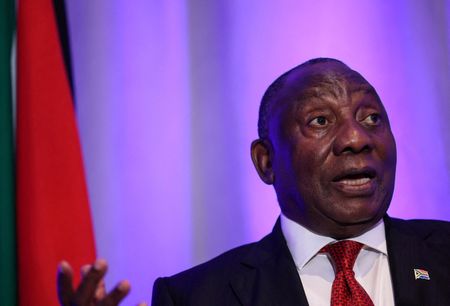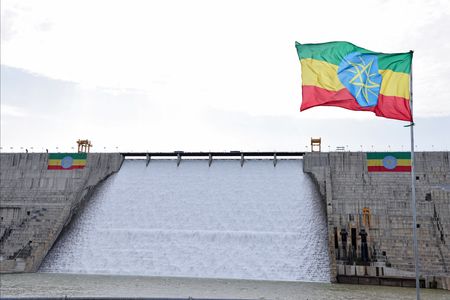By Shadia Nasralla
LONDON (Reuters) – Oil prices rose on Wednesday after Israel attacked Hamas leadership in Qatar, Poland shot down drones and the U.S. made a push for new sanctions on buyers of Russian oil, but concerns over crude oversupply capped further gains.
Brent crude futures were up 66 cents, or 1%, at $67.05 a barrel, at 1208 GMT, and U.S. West Texas Intermediate crude futures rose 68 cents, or 1.1%, to $63.31 a barrel.
Prices had settled 0.6% higher in the previous trading session after Israel said it had attacked Hamas leadership in Doha.
Both benchmarks rose nearly 2% shortly after the attack, but then retraced much of their gains.
Elsewhere, geopolitical tensions also rose when Poland shot down drones during a widespread Russian attack in western Ukraine on Wednesday, marking the first time a NATO member fired shots in the war. However, there was no immediate threat of a supply disruption.
“The dark cloud of surplus ahead is … hanging over the market with Brent trading two dollars lower than last Tuesday. Geopolitical risk premiums in oil rarely last long unless actual supply disruption kicks in,” SEB analysts said.
Meanwhile, U.S. President Donald Trump has urged the European Union to impose 100% tariffs on China and India – major buyers of Russian oil – as a strategy to pressure Moscow, according to sources.
With European Union officials in Washington to discuss Russia, European Commission chief Ursula von der Leyen said on Wednesday the bloc was considering a faster phase-out of Russian fossil fuels as part of new sanctions against Moscow.
Traders expect the Federal Reserve will cut interest rates at its September 16-17 meeting, which would boost economic activity and demand for oil.
But the supply outlook remains bearish. The U.S. Energy Information Administration cautioned global crude prices will be under significant pressure in the coming months because of rising inventories as OPEC+ increases output.
U.S. crude, gasoline and distillate stocks rose last week, market sources said, citing American Petroleum Institute figures on Tuesday. Government data is due at 1430 GMT.
(Reporting by Shadia Nasralla, additional reporting by Colleen Howe in Beijing; Editing by Sonali Paul, Kirsten Donovan)

